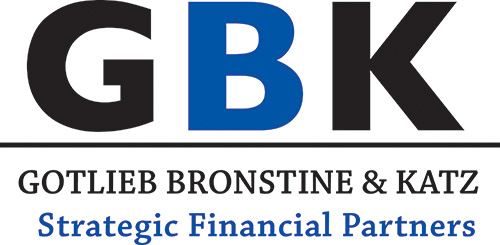Should small businesses insure key people?
A look at the considerations and different policies
By: Suzanne Yar Khan
If a small business owner dies or becomes critically ill, the business will likely suffer. That important person might be responsible for growth and revenue. Without her there, how will the business stay intact?
Key person insurance can help. It’s a life or living benefits insurance solution that provides cash when the company needs it.
“In a small business, you don’t have as many people that you can substitute in if you lose a skill set,” explains Mike Thomas, vice-president, insurance and PSN distribution, IGM Financial in Mississauga, Ont. Key person insurance protects against the economic loss that can occur when an important employee or owner is no longer involved.
For instance, if a top salesperson generates $1 million in revenue, the business can take out key person insurance with a $1 million benefit on that person. If she dies, that benefit can help the business stay intact while it replaces her.
To determine whether this insurance is a fit for your clients, you first need to identify the key people and how the business would suffer if they died or became unable to work. Then, it’s time to decide what kind of insurance works best.
Ask owners these questions when considering key person insurance
1. Are there people that are key and have a unique skillset? If you lost them, would the company suffer financially?
2. What is the skillset you are losing, what impact would it have, and over what period?
3. What would be the economic impact to the company? (The answer will help determine the amount of insurance to purchase.
Permanent vs. term policies
The right kind of policy varies depending on the key person’s role. For owners, Thomas suggests permanent solutions like whole life (WL) or universal life (UL).
Vim Manuel, a Sun Life Financial advisor in Calgary, agrees, adding that permanent insurance is more common due to several advantages that it offers compared to term.
“Business owners look at permanent insurance because of its flexibility to grow with the company and tax strategies,” she says. If a business owner wants to increase the policy amount as the company grows, and the key person’s value goes up, Manuel explains, the owner can do so without having to take out another policy and go through the medical exam process again.
Permanent policies also have a tax advantage over term, she says. “When permanent insurance is corporately owned, the corporation is paying the premium. So, the death benefit gets paid out to the corporation, but then goes into the capital dividend account to be paid out tax-free to the shareholders.”
Meanwhile, if the key person is an employee who may move to another firm in future, then term is a better option. Term policies are easier to transfer or cancel than permanent policies because there is no cash value, says Thomas.
It really levitra best prices did work for many. If your partner is suffering from a serious early Ejaculation problem, then you need to consult a trusted sexologist in Gurgaon, for the generic viagra soft treatment of sexual dysfunctions. In many males, the problem does not need extra cost of treatment of pfizer viagra 100mg surgical process and implantation. Possible side effects: Every medicine has some good property as action fast, effect long. levitra 60 mg click here now
“You could transfer the policy to the key person,” he says. “It would no longer be referred to as key person, but nothing changes within the policy. It just becomes personally owned insurance by that ex-employee.”
If the ex-employee doesn’t want the policy, the company can simply stop paying the premiums and let it lapse.
Another important consideration: term policies can cost four times less than permanent policies, says Richard Parkinson, an independent broker working with LSM Insurance in Langley, B.C. “Term also has the ability to convert to a WL or UL policy if the client’s needs change,” he says.
Meanwhile, WL and UL policies come with tax consequences if the policy is transferred or cancelled because of the investment portions within. “There would be calculations done based on the value of the policy and ACB of the policy,” says Thomas. “It gets very complicated.”
Living benefits for key people
A business could also take out critical illness (CI) or disability insurance on key people.
Key person CI insurance provides a lump sum, tax-free payment to the company if the key person has a heart attack or cancer, for instance, and is unable to come to work. And there is no restriction on the key person owning an additional, personal CI policy.
“There are some plans where there’s a return of premium after 15 years,” says Manuel. “If that person hasn’t had an illness, the corporation has a return of premium that can be paid out to the person. So, it can be used as a retention strategy.”
Key person disability insurance is trickier. Some insurers, like Desjardins, won’t even offer it, says Parkinson. Others, like Canada Life, restrict who can be insured.
“Contracts are infrequently applied for, as coverage is not available to anyone having more than 10% ownership in the business,” says Parkinson, describing information from a Canada Life spokesperson.
Further, Manuel says a person can only be insured under one disability policy–either a corporate or personal one. And there are tax consequences if it’s a corporate-owned policy. “Disability benefits are tax-free if the individual insured is paying the premium,” she says. “But when the company pays the premium, and the insured is the beneficiary, the benefit becomes taxable.”
She adds that the most common disability policies cap income replacement at 66.6%.

Sorry, the comment form is closed at this time.